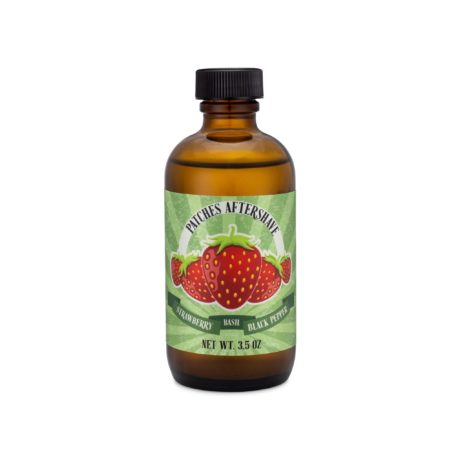You likely have a bottle of aftershave sitting in your medicine cabinet, ready to add to your face after your morning shave.
Aftershave products are commonly associated with a burning sensation after application.
If you think this is your aftershave “working”, think again…
That burning sensation could be the result of a number of ingredients that could actually be doing more harm than good for your skin.
In fact, few men actually take the time to think about what is inside that bottle.
Did you know that most aftershaves are actually full of ingredients that are harsh and can dry out your skin?
Here are four not-so-great ingredients to be mindful of before picking up your aftershave.
Table of Contents
1. Alcohol
It’s common for aftershaves to include some form of alcohol. This is because alcohol is used as an astringent to help close the pores.
Sure, alcohol is an antiseptic and helps prevent infection after shaving, but it’s also hard on the skin barrier and makes it challenging for your skin to retain crucial moisture. You may find that your aftershave is causing more issues than it solves.
Alcohol may appear on an ingredients list as the following:
- SD alcohol
- Ethanol
- Denatured alcohol
- Isopropyl alcohol
- Methanol
- Ethyl alcohol
However, witch hazel is a commonly available alternative that doesn’t cause excessive irritation and drying.
2. Acetates
Tocopheryl acetate is a form of vitamin E that can be found in many skin care products, including aftershaves. Acetate is used as a form of sunscreen, but it’s also a mild immunotoxicant, according to the EWG database. This means it can cause immune system—or allergy-related reactions—including contact dermatitis.
Therefore, if you have sensitive skin, then using an aftershave product with acetates can be bad news. Furthermore, some studies show that high-dose exposure to tocopheryl acetate is linked with tumor growth.
3. Phthalates
Phthalates are chemicals used to soften plastics in industrial manufacturing, but they’re also used as an additive in skin care products to moisturize the skin.
Bad news, boys—phthalates are terrible for your manhood, and they’re probably in your aftershave.
The consequences of overexposure to phthalates include:
- Testicular atrophy
- Hypospadias
- Reduced sperm count
- Shrunken seminal vesicles
All of these side effects affect the male reproductive system. Although women are more often exposed to phthalates since they use more personal care products, men are affected in more adverse ways.
The bottom line is, stay away from phthalates in your aftershave if you can.
4. Mystery Fragrances
Does the ingredients list include an ambiguous “fragrance”, or perhaps “artificial fragrance?”
The problem with unlisted fragrances is that they can contain many compounds, meaning there’s no way for consumers like you to avoid irritating, toxic, or otherwise damaging components.
In fact, many of these unlisted fragrances contain phthalates as a component, and manufacturers aren’t required to list them. Other harmful ingredients that can be part of synthetic fragrances include:
- Benzene derivatives
- Aldehydes
- Petroleum
- Toulene
- And hundreds more
Studies show that these particular chemicals may be linked to cancer, birth defects, and other harmful reactions.
This doesn’t mean you have to avoid fragrances altogether. Simply choose aftershaves scented with natural fragrances, such as essential oils and other natural derivatives. This way, you know exactly what you’re putting on your face, and what effects it could have on your body.
Alcohol-Free Aftershaves
All in all, if you are looking for an aftershave product that is healthier, safer, and better for your skin, then look for aftershaves marketed as alcohol-free. Many manufacturers know that consumers seeking alcohol-free products also want products without phthalates and harmful fragrances.
Now that you know how to make better decisions when shopping for aftershave, you can be sure that your skin will thank you.

